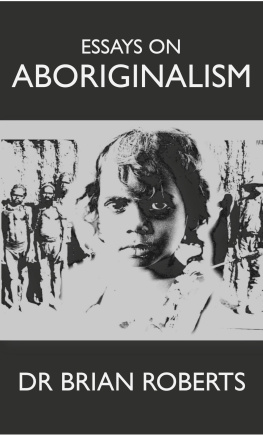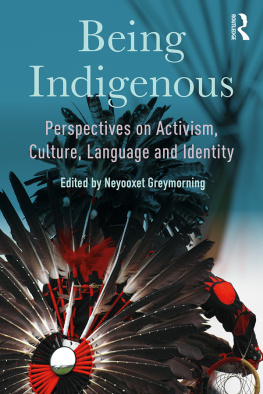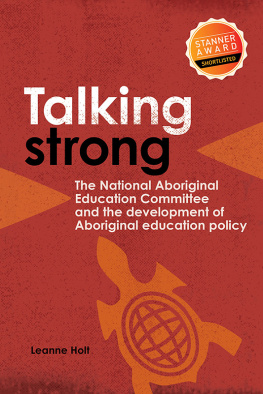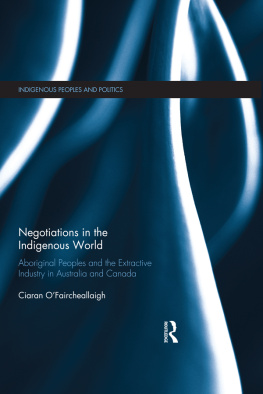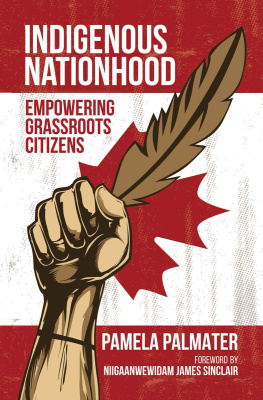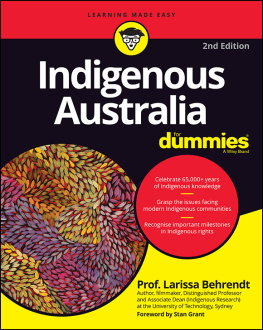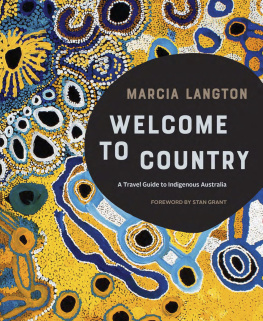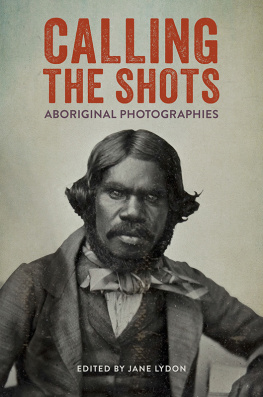ABOUT THE BOOK
This compilation represents two decades of personal research on Indigenous culture and spirituality. It analyses group identity and seeks to highlight the fundamental building blocks or essence of Aboriginal well-being. The author extracts the critical issues faced by Indigenous communities and relates these to mainstream behavioural norms, drawing on the writings of Pearson, Sutton, Johns and Bolt. A comparison has also made between Aboriginal and Islamic values.
In the contemporary era of political correctness, the groundbreaking marshalling of the authors evidence may be provocative, but this re-focussed insight may offer a clearer map of new worldviews. The author deplores the historic injustices which dispossessed Australias first people, but warns against the self-defeatism of modern martyrism.
The authors tough thinking on tribalism, inappropriate cultural values and starry-eyed idealism on separatism may challenge the traditional purists. Similarly this honest incisive debate on norms will explore bad behaviour for what it is.
ABOUT THE AUTHOR
Professor Emeritus Brian Roberts has lived half his life in South Africa and half in Australia. An agricultural ecologist by profession, he has a passion for sustainable land use while his highly developed social conscience has led to decades of research into tribal peoples rights and responsibilities. Recognised as The Father of Landcare he was awarded the Order of Australia in 1998, having earlier won the South African Community Service Medal for his work in rural soil conservation. He was the founding president of the Soil and Water Conservation Association of Australia, Organising Chairman of the Ninth International Rangeland Congress and has held professorships at three universities.
Professor Roberts chaired the Lower Balonne Advisory Committee on water sharing, the Queensland Rural Fires Council, the Queensland Freshwater MAC and the Nathan Dam Community Committee on Dawson River Water Supplies. As a senior member of the Cape York Peninsula Land Use Strategy and convenor of CSIROs Water Quality Joint Venture team in North Queensland as Adjunct in Environmental Studies at James Cook University, he contributed to mainstream and Indigenous community conservation projects. He was a member of the National Conservation Advisory Committee and the Queensland Sheep and Wool Research Committee. Much of his recent writing has been published in Quadrant Online. He is the author of 13 books, many book chapters and numerous journal articles since 1956. As a member of ANUs Fundamental Questions program he produced the seminal paper Land Ethics: A necessary addition to Australian Values (1984).
I read Whitefella Dreaming with great interest, finding it exceptionally clear-minded and full of suggestive ideas and parallels. I fear the times are not welcoming towards free thought, and many of the notions Dr Roberts has advanced that seem most worthwhile to me, are in the category of present day Australian heresy. I am struck by the way that modern experts tend not to recognise the ways in which they re-enact colonial patterns of engagement.
Nicolas Rothwell, award-winning author, journalist and the Northern Australia correspondent for The Australian newspaper.
Dr Roberts views are very broadly balanced because he cares both professionally and personally. His concern for the realism of management of culture in the future to continue to be authentic is genuine; for people of all cultures to manage their issues and cultural knowledge in the way their profound learnings have taught them. True culture brings balance in a way that our children of the future can feel free, affected by their cultural learning in a positive way, with great pride and dignity, that will always have a genuine fit within our changing world because as Australians we are one and, we are many. Thank you always for your genuine caring through the important and clear messages within your big picture presentations. It would be sad if Indigenous students and staff did not study your positive, balanced Indigenous texts.
Jeannie Aileen Little, Gaarkamunda OAM
Brian has done us a great favour with his latest offering of essays on Aboriginal affairs. It is refreshing to read writing straight from the heart, without any axe to grind or agenda to push. He not only gets you thinking, but thinking in new ways. And new ways of thinking on Aboriginal affairs is precisely what we need.
Dr Anthony Dillon, Australian Catholic University
Dr Roberts has an extraordinary capacity to grasp and hold onto the big picture while conducting a forensic examination of every facet of the Aboriginal debate. He writes with empathy to distinguish between the urban Aborigines and those who remain isolated and basically culturally unchanged, while highlighting the difficulties the Aboriginal cause has in speaking with one voice for Constitutional change, recognition, equity and advancement.
Alec Lucke, Road to Exploitation: Political Capture by Mining in Queensland
OVERCOMING DISADVANTAGE
PAST LESSONS FOR INDIGENOUS FUTURES
DR BRIAN ROBERTS
Dedicated to my late father Wilfred Ross Roberts whose integrity and tolerance made him a role model to us all.
PREFACE
These writings are the product of over 20 years study of Indigenous policy and progress. Originally, the author started with one central question, What Constitutes a Fair Go for Aborigines?, which was the title of the first paper in 1998. Two decades later, the answer remains elusive, due primarily to a failure to agree on goals of Indigenous development.
In the first section, it seemed logical to examine the lessons of history first, as a background to understanding the present views of both Blacks and Whites in Australia. The historic review could only capture a limited number of case studies, but hopefully enough to allow for an assessment of the carry-over influence of the colonial missionary era as a major driver of contemporary action.
The author draws largely on the most credible of Indigenous observers to seek goals and directions, before suggesting policy objectives which aim to combine the most appropriate actions for improving Indigenous well-being.
The second section concentrates on the rights and responsibilities of Indigenous people and how their central issues may be clarified as essential actions which are introduced as In Essence in a bid to suggest to the wider public and the Indigenous communities themselves, where the most appropriate values and behaviours lie, if their grandchildrens future is the prime concern.
In this second section, the role of culture and identity features centrally in the suggested nuances of tradition and well-being, as the amalgam of personal choices likely to produce appropriate futures for Indigenous people. The virtues or otherwise of separatism and exclusiveness feature strongly in the case which is made for joining the Open Society in what has previously been termed Mainstreaming.
The third section is a loosely-structured series of case studies which highlights a wide range of factors currently bearing down on Aboriginal people, both rural and urban. With mixed success, the author has attempted to extract what he hoped would be a useful message from each case. These case studies were not selected at random but consciously, as a means of illustrating what the authors wide study of the issues appears to identify as building blocks of substance which, in combination, offer a framework for future policy. Such a policy will be built on values appropriate to future Aborigines, not those past traditions best left in the past.


